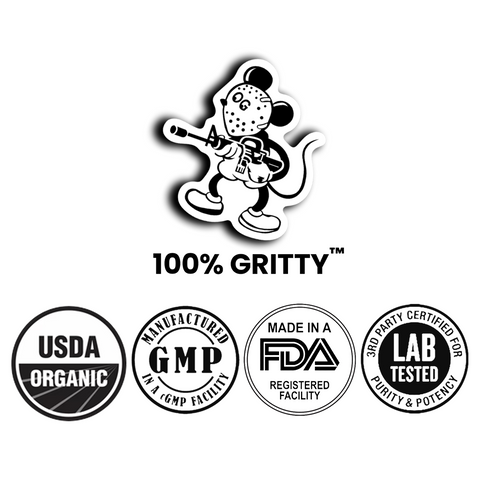In the world of natural remedies, few substances have garnered as much attention and acclaim as CBD oil. With its potential therapeutic benefits and non-intoxicating nature, CBD has become a go-to option for individuals seeking alternative solutions for their health concerns. However, amidst the growing popularity of CBD oil, there remains a pervasive question that continues to circulate: Does CBD oil have psychoactive effects? More specifically, can CBD oil get you high?
In this comprehensive blog post, we embark on a journey of exploration to uncover the truth behind CBD oil and its potential to induce euphoria or intoxication. By the end of this article, you will have gained a clear understanding of how CBD oil interacts with the body, the factors that influence its psychoactive properties, and the reasons why CBD oil does not produce a high.
Understanding CBD and THC
To comprehend the effects of CBD oil, it is crucial to understand the difference between CBD (cannabidiol) and THC (tetrahydrocannabinol). While both compounds are derived from the cannabis plant, their properties and effects on the body differ significantly.
CBD is a non-intoxicating compound that is known for its potential therapeutic benefits. It interacts with the body's endocannabinoid system (ECS), which plays a crucial role in maintaining homeostasis. CBD does not produce the same psychoactive effects as THC and does not induce a "high" feeling.
On the other hand, THC is the primary psychoactive compound in cannabis responsible for the euphoric and intoxicating effects commonly associated with marijuana use. THC binds to cannabinoid receptors in the brain, leading to the alteration of mood, perception, and cognitive function.
Legal CBD Products and THC Content
In many countries, CBD products are legally required to contain less than 0.3% THC to be classified as hemp-derived CBD. This minimal amount of THC is not enough to produce psychoactive effects or induce a high. Therefore, reputable CBD oil manufacturers rigorously test their products to ensure they comply with legal THC limits and provide consumers with pure CBD oil without any mind-altering effects.
CBD Oil Extraction and Isolation
CBD oil is typically derived from hemp plants that naturally contain higher levels of CBD and minimal amounts of THC. The extraction process involves removing CBD from the plant material and isolating it for use in various products. Reputable manufacturers use advanced extraction methods to ensure the highest quality and purity of CBD oil.
Full Spectrum vs. Broad Spectrum vs. CBD Isolate
CBD oil products come in different forms, including full spectrum, broad spectrum, and CBD isolate. Full spectrum CBD oil contains a wide range of cannabinoids, including THC, but in legal amounts that do not produce psychoactive effects. Broad spectrum CBD oil, on the other hand, undergoes additional processing to remove all traces of THC while retaining other beneficial cannabinoids and terpenes. CBD isolate is the purest form of CBD, containing only the isolated CBD compound without any other cannabinoids or THC.
The Bottom Line
In conclusion, CBD oil does not get you high. CBD is a non-intoxicating compound that interacts with the body's endocannabinoid system to promote overall well-being. The negligible amount of THC found in legal CBD oil products is not enough to produce psychoactive effects or induce a euphoric state. It is crucial to choose high-quality CBD oil from reputable manufacturers like Organic Grit to ensure compliance with legal THC limits and to experience the potential therapeutic benefits of CBD without any mind-altering effects.
References:
-
World Health Organization. (2018). Cannabidiol (CBD) - Critical Review Report. Retrieved from https://www.who.int/medicines/access/controlled-substances/CannabidiolCriticalReview.pdf
-
U.S. Food and Drug Administration. (2020). FDA Regulation of Cannabis and Cannabis-Derived Products, Including Cannabidiol (CBD). Retrieved from https://www.fda.gov/news-events/public-health-focus/fda-regulation-cannabis-and-cannabis-derived-products-including-cannabidiol-cbd
-
Huestis, M. A. (2007). Human Cannabinoid Pharmacokinetics. Chemistry & Biodiversity, 4(8), 1770-1804. doi: 10.1002/cbdv.200790152
-
Pamplona, F. A., da Silva, L. R., & Coan, A. C. (2018). Potential Clinical Benefits of CBD-Rich Cannabis Extracts Over Purified CBD in Treatment-Resistant Epilepsy: Observational Data Meta-analysis. Frontiers in Neurology, 9, 759. doi: 10.3389/fneur.2018.00759
-
Zuardi, A. W., Crippa, J. A., Hallak, J. E., Bhattacharyya, S., Atakan, Z., Martin-Santos, R., . . . Guimarães, F. S. (2012). A






Comments (0)
There are no comments for this article. Be the first one to leave a message!